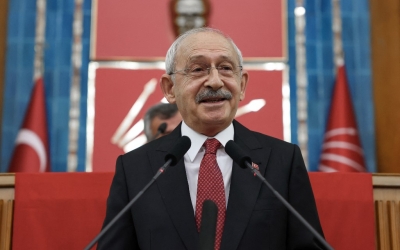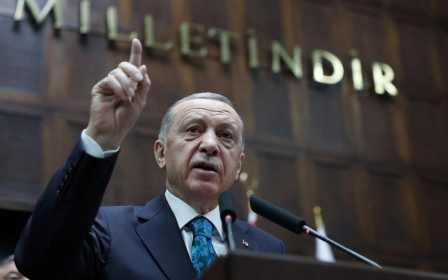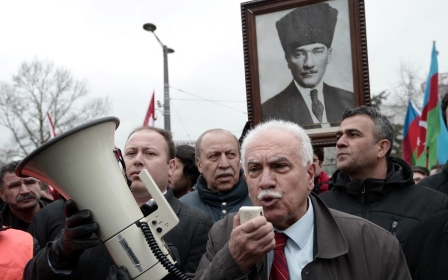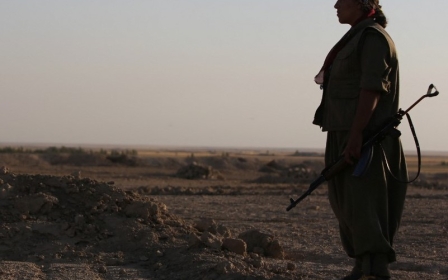Turkey elections: Cracks emerge at prestigious Islamic school over Kilicdaroglu
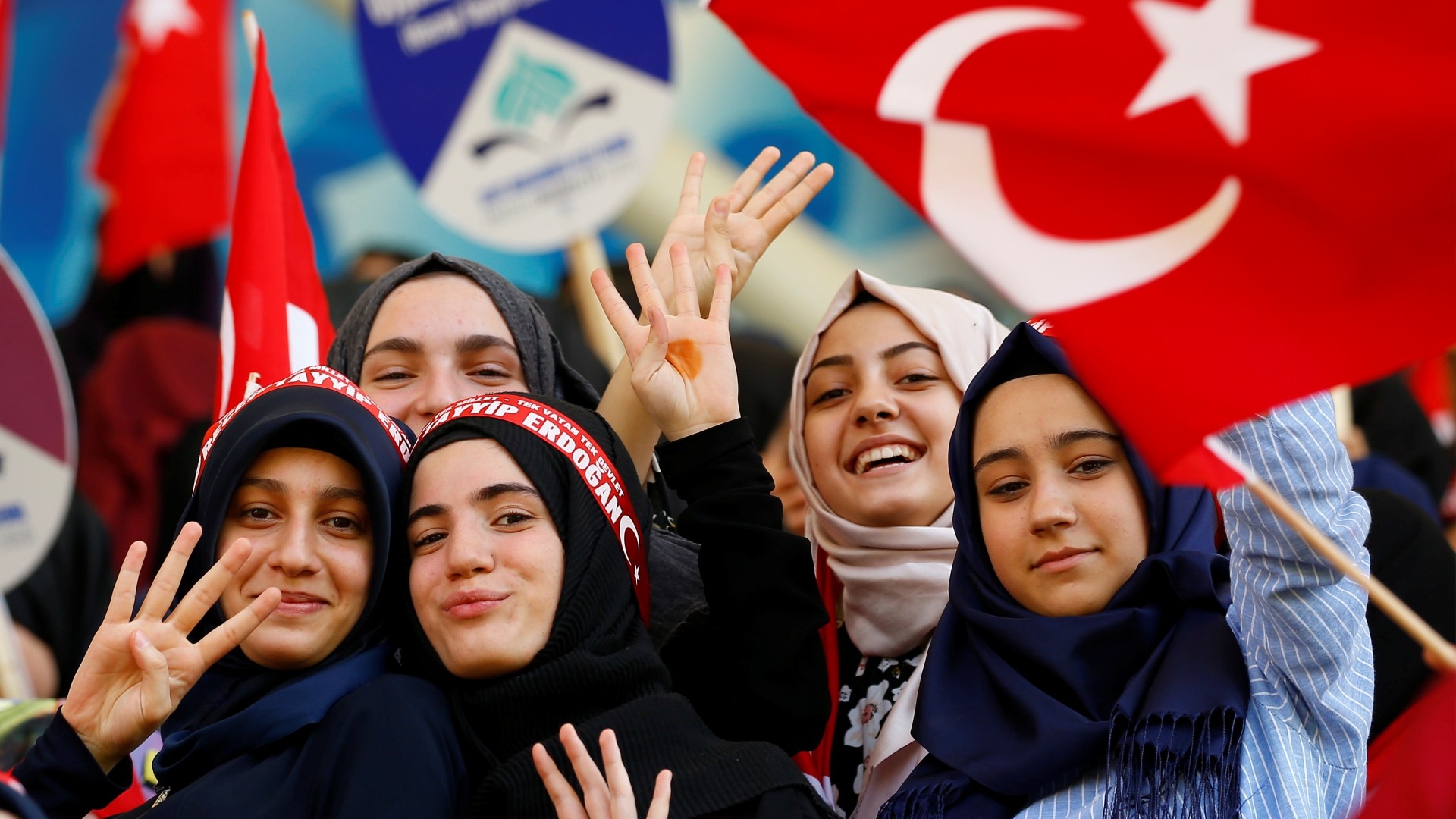
Turkey’s secularists have always had a certain unease about the Imam Hatip religious schools, places they deemed factories producing influential Islamists.
A “postmodern” military intervention in the 1990s, led by secularists, penalised the schools by undercutting their students’ chances of getting university-level education in anything other than theology classes.
Founded to train future imams and preachers, perhaps the Imam Hatip’s most famous graduate is the Turkish president, Recep Tayyip Erdogan.
Erdogan has said one of his goals is to forge a "pious generation" in largely Muslim Turkey, and he has continued investing in the schools, building more of them every year.
There are now 1,673 Imam Hatip schools, which train more than 10 percent of high school-level students.
New MEE newsletter: Jerusalem Dispatch
Sign up to get the latest insights and analysis on Israel-Palestine, alongside Turkey Unpacked and other MEE newsletters
Yet now, a small group of graduates from one of the country's most prominent Imam Hatip schools have declared that they would support a former foe, Kemal Kilicdaroglu, the joint presidential nominee from the opposition and chairman of the secularist Republican People’s Party (CHP), ahead of the 14 May elections. The news lit up Turkish media.
“Today, an attempt is made to create a baseless perception that all Islamist-religious sections in Turkey owe their existence to the [ruling] AK Party and Erdogan,” a letter signed by 25 graduates of Kartal Anadolu Imam Hatip school said.
“We do not owe any gratitude to these power factions, who want to see Imam Hatips as the backyard of their regime and lawless and unruly power networks.”
Increasing prestige
Kartal Anadolu Imam Hatip school, founded in 1985, rose to fame after Erdogan’s son Bilal graduated from there in the early 2000s.
It is seen as by far the best school in the field, which teaches regular courses of physical sciences and maths as well as religious courses. It has advanced labs and facilities, and also sends a lot of students to top universities.
The school increased its standing as more and more of its graduates were hired by top companies and state institutions, creating a network on a par with Turkey’s prestigious high schools such as Galatasaray and Robert.
The former students who signed the letter say they have been fed up with the perception that Kartal Anadolu Imam Hatip was only associated with Erdogan and his party, and therefore all its graduates were afforded advantages in life that others were not.
“All of our families are Islamists and we maintain that tradition,” Mustafa Erdem Yavuz, one of the signatories of the letter and a law student, told Middle East Eye.
“The Islamists in Turkey behave like they are part of a political regime. All the Islamist political movements have cowed for the past seven years, along with regular citizens.”
'All the Islamist political movements have cowed for the past seven years, along with regular citizens'
- Mustafa Erdem Yavuz, Imam Hatip graduate
However, supporting a CHP candidate isn’t an easy outcome.
Voters remember the CHP’s previous secular policies, such as its decision to support the headscarf ban in universities and public institutions. Older Turks often mention how the CHP’s one-party rule, which lasted from 1923 to the 1950s, saw a crackdown on religious education and the clergy.
Last year, Kilicdaroglu came up with a proposal: he asked forgiveness from the religious masses for the past mistakes by using the religious term of helallesmek, which can be translated as "writing off each other's debts".
Yusuf Manav, another signatory, says the proposal struck a positive chord among the group of friends, who have been studying political science and political history.
The letter references Kilicdaroglu’s political journey as well.
Kilicdaroglu has helped transform the party that founded the Republic of Turkey from a secularist, establishment political organisation to one that is diverse, socially democratic and centre left. And he has also tried to establish a political alliance with former foes: the Islamists and religious conservatives who used to govern the country with Erdogan just a few years ago.
The students say that by creating an unlikely alliance of six opposition parties Kilicdaroglu proved himself as a democrat who can ratify a political reform programme for the better.
Manav says AKP supporters are defending the party by saying that they wouldn’t want to lose hard-won achievements, such as allowing headscarves to be worn in the public sector and freer religious education, and that’s why they still support the party.
“However, something becomes a right if your opponent also perceives it a right,” Manav says. “And Kilicdaroglu recognises them as rights, not as mere achievements that were facilitated through the state power [and] therefore must be protected by the AK Party. That recognition of rights by a party that is deemed as an opponent of Islamist movement in the past stands as a historical chance for Turkey.”
Diverging views
Another former Kartal Anadolu Imam Hatip graduate, who didn’t sign the letter, told MEE anonymously that the statement wasn’t surprising, since the school has always had students from diverse political backgrounds, including left-wingers or even CHP supporters.
“Nowadays I hear from the teachers that there are even agnostics or atheists in the school,” the graduate said. “Because the school itself has a standing for quality education and networks, that’s why it is a nest for promising students who want a better future.”
The letter itself also triggered a formal joint statement from the Kartal Education Foundation charitable group and Kartal Anatolian Imam Hatip High School Graduates' and Members' Association.
“It is never acceptable for a group that does not have the authority to represent our school to take a political side by trying to present its views as those of the entire community,” the statement read.
“We would like to remind you that we do not and will not consent to political partisanship by people who do not have the authority to represent our school by using the name of our school.”
The statement also referred to past pressure campaigns against the Imam Hatip schools through legal as well as social means, an apparent reference to the CHP and sections of society that previously wanted to close the schools for fear of an emerging Islamic regime.
Yet, the letter’s signatories believe they have a responsibility as citizens to express themselves and support the right candidate, who they believe would create a more open and safe space for public debates on the fate of the country.
“We would like to open a new channel for Islamism. If Islamism would continue to be alive, this could be on the grounds which Kilicdaroglu paved the way for, because Kilicdaroglu created the democratic basis on which Islamists can follow a new path of politics and discourse,” Yavuz says.
“Today’s Islamists have forgotten to take civil initiatives, civil participation and intellectual activism."
However, there is still a certain level of fear among Islamist voters that indicates not all the others share their confidence in a Kilicdaroglu government. Footage has been circulating online in recent days that allegedly shows secularists attacking Quranic schools and women with headscarves.
“If the raging minority wins the election, we may face even more serious attacks,” a social media commentator tweeted, expressing fear of a CHP-led government.
Middle East Eye delivers independent and unrivalled coverage and analysis of the Middle East, North Africa and beyond. To learn more about republishing this content and the associated fees, please fill out this form. More about MEE can be found here.


